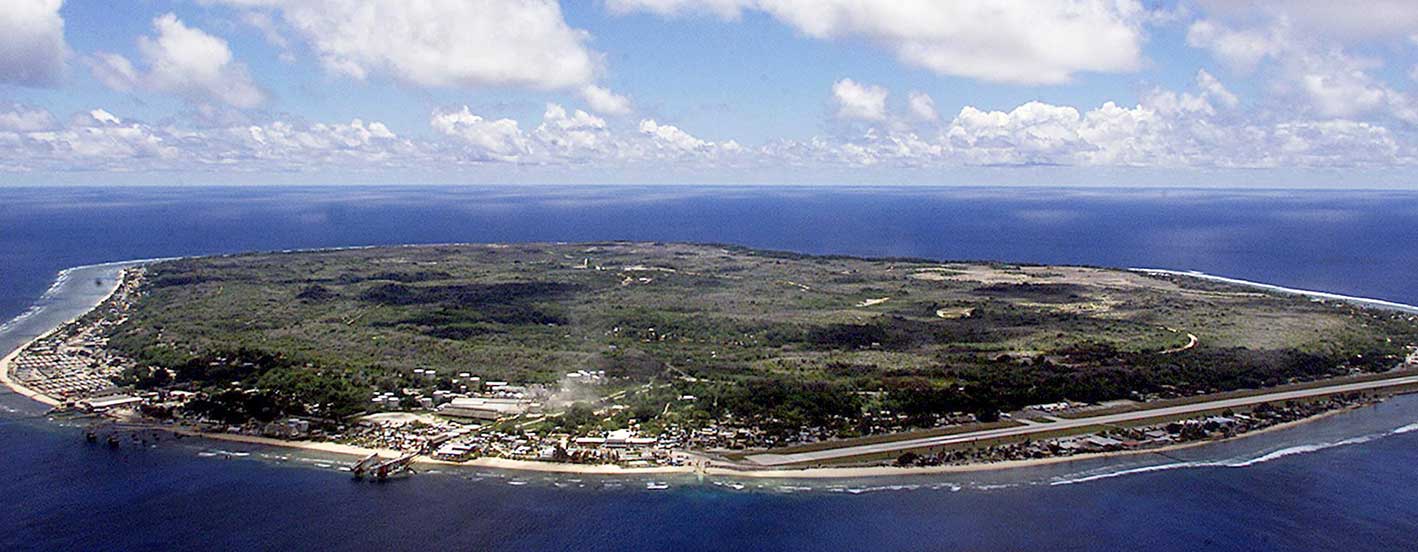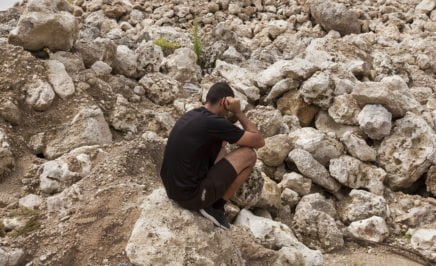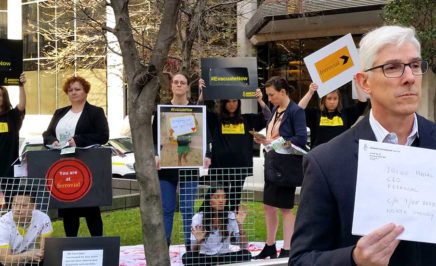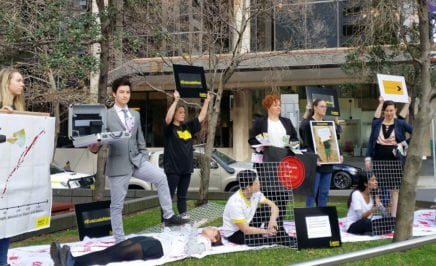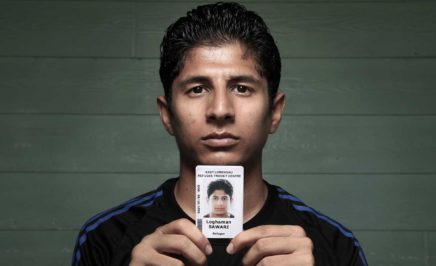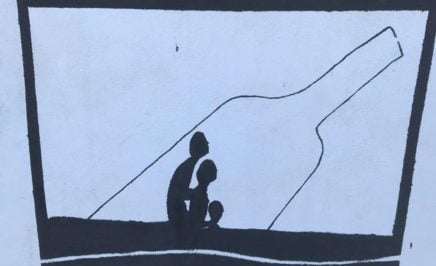A new briefing, Treasure I$land, exposes how Spanish multinational Ferrovial and its Australian subsidiary Broadspectrum are complicit in, enabling, and reaping vast profits from, Australia’s cruel, secretive and deliberately abusive refugee “processing” system on Nauru.
“The Australian government has created an island of despair for refugees and people seeking asylum on Nauru, but an island of profit for companies making millions of dollars from a system so deliberately and inherently cruel and abusive it amounts to torture,” said Lucy Graham, Amnesty International’s Researcher on Business and Human Rights.
“By knowingly enabling the continuation of this system, which is specifically designed to cause suffering and deter people from travelling to Australia by boat to seek asylum, Broadspectrum and Ferrovial are unequivocally complicit in this abuse.”
With Broadspectrum’s AUD$2.5 billion contract with the Australian government ending in October, Amnesty International is warning other firms against seeking to profit from torture.
“Any company or organisation considering taking up this toxic baton will be complicit in an intentionally abusive system, in direct contravention of its human rights responsibilities, and will be exposing itself to potential criminal liability and damages claims,” said Lucy Graham.
“The regime of cruelty at the Refugee Processing Centre on Nauru leaves a stain that no responsible company would want on its conscience or reputation.”
Cruelty – a lucrative business
Since 2012, Australia has operated intentionally harsh “offshore processing” systems on Nauru and Manus Island, Papua New Guinea. Up to 2,000 men, women and children are warehoused in remote locations and subjected to cruel and degrading conditions, sometimes for years on end, simply because they have sought safety on Australian shores.
Amnesty International’s October 2016 report, Island of Despair: Australia’s ‘processing of refugees on Nauru’ found that the Australian government is intentionally and systematically violating the rights of refugees and people seeking asylum on Nauru. It concluded that the conditions on Nauru are so deliberately cruel and abusive that they amount to torture.
It has now transpired that cruelty and abuse make for a lucrative business.
The Refugee Processing Centres (RPCs) on Nauru and Manus Island are run by Broadspectrum, which was bought by Ferrovial in April 2016.
Amnesty International’s latest briefing details how the part of Broadspectrum’s business that runs its operations on Nauru and Manus Island contributed AUD$1.646 billion in the 2016 financial year– an astonishing 45% of the company’s total operating revenues.
Meanwhile, Ferrovial has raked in 1.4 billion euros in revenues from Broadspectrum since acquiring the company. A substantial portion of this comes from operations on Nauru and Manus Island.
“Not only are Ferrovial and Broadspectrum turning a blind eye to the human rights violations perpetrated by the Australian government; they are the very enablers of the abuse,” said Lucy Graham.
“It’s a clinical, cold-blooded set-up where the Australian authorities set the blueprint for cruelty, and the companies do the dirty work. Considering the extraordinary profits on offer, we believe it is clear that these companies are motivated by sheer greed.”
The total value of the Australian government’s contract with Broadspectrum is AUD$2.5 billion (US$1.9 billion) over three and a half years.
When put into the context of Broadspectrum’s other business sectors, it becomes clear just how profitable this contract is.
The profit margin in Broadspectrum’s Defence, Social and Property sector – which includes its Nauru and Manus Island operations – was 17.8% in its 2016 financial year, far higher than in its other business sectors such as Infrastructure (2.8%) and Resource and Industrial (1.6%).
Meanwhile, Ferrovial’s revenues in its Nauru and Manus Island-related Service sector increased by 24.1% in 2016 due to its acquisition of Broadspectrum.
No company should profit from abuse
Australia’s offshore processing system on Nauru could not function without Broadspectrum’s involvement. Ferrovial has stated it will not renew the contract when it expires in October 2017, so the Australian government is expected to issue a call for new service providers soon. Amnesty International is warning others not to take on this contract.
“No company should be operating on Nauru or Manus, where the current situation is so noxious that it would be impossible for any firm to do so without contributing to serious human rights violations and exposing itself to legal liability and reputational risk,” said Lucy Graham.
“It’s therefore our duty to the victims of human rights violations on the islands to name and shame any company that puts profit before decency by choosing to become involved in Australia’s abusive operations.”
Amnesty International is calling on the Australian government to shut down the offshore processing system; immediately bring all refugees and asylum seekers on Nauru and Manus Island to Australia; and ensure that all those who were granted refugee status have the right to settle in Australia.
It is also urging the Australian government to cooperate with all rights-respecting offers of international cooperation and assistance, including resettlement of refugees to third countries if the refugees wish to be resettled and are able to make a fully informed and free choice.
The organisation is calling on Ferrovial to end its operations on Nauru and Manus Island as soon as possible.
